There’s no room for error when it comes to the chemical sanitation program within your vivarium. Less than precise sanitation could cause major problems in maintaining the welfare of your animals, the integrity of your research, the safety of your employees, and the well-being of your environment.
Finding a reliable chemical sanitation partner goes beyond simply searching for a company with the lowest price. You need a partner who takes a holistic approach to service that sets your program up for success. They should understand that the chemical sanitation program is one pillar intertwined with many other pillars needed to achieve innovative research.
11 Benefits Your Chemical Sanitation Partner Should Provide
There’s a lot riding on keeping your animal research facility properly cleaned and disinfected. Failure to do so risks:
- The welfare of the animals
- The health and safety of the Husbandry Team
- Cross contamination
- The integrity of research being conducted
- Research dollars
Your biomedical institution can’t afford these risks. You need a proactive chemical sanitation partner who helps keep your research on track with a proactive holistic approach to chemical sanitation. Since switching to a new chemical solutions provider is a big undertaking, you want to be certain you’re working with a team you can trust.
A new vendor should be able to provide the following benefits:
- Detailed service reports
- Comprehensive mechanical inspection of washing equipment
- Prompt response to trouble calls
- Titration of all chemicals in use
- Equipment installation and repair
- SOP development and validations
- Comprehensive training programs
- Inventory control and cost analysis
- Annual sanitation program reviews
- Joint process improvement implementation
- Microbiological consulting
1. Detailed Service Reports
Your sanitation vendor should be a proactive partner who isn’t afraid to come into your facility, point out issues, and provide solutions. All elements of a visit to your operation should be documented. A detailed service report should include observations regarding:
- Cage wash operations
- Animal housing cleaning and disinfecting
- Employee hygiene and safety
- Chemical titration to include all disinfectants
- Inventory control and analysis
- ATP validation of the cage wash program
2. Comprehensive Mechanical Inspection of Washing Equipment
There are many opportunities for something to go wrong within the chemical sanitation program. A committed and proactive chemical sanitation partner will look at every part of the cleaning and disinfection process.
Regular and thorough inspections increase the probability of catching a problem in advance and keep your research facility running smoothly.
3. Prompt Response to Trouble Calls
A malfunctioning chemical feed pump on your rack, tunnel, or bottle washer can bring your work to a grinding halt. You can’t afford to have your facility shut down for days while waiting for a vendor to assess and fix the problem. Look for a partner who provides dedicated local technical support and equipment repair with prompt response.
4. Titration of All Chemicals in Use
Proper sanitation is extremely important in biomedical research. Cleaning and disinfecting chemicals must be carefully measured to ensure they will perform as intended. Using too little could allow pathogens to spread, endangering the health and safety of animals and husbandry staff. Using too much is a drain on your budget and can cause residue buildup, which can become a growth niche for pathogens.
A chemical sanitation partner should provide chemical titrations throughout all aspects of your vivarium lab cleaning and disinfecting program – from small animal cages to large animal rooms. A reliable chemical sanitation partner will ensure that your equipment is properly cleaned and disinfected.
5. Equipment Installation & Repair
Owning and maintaining chemical dispensing equipment is expensive. Look for a vendor who offers loaned equipment they install and maintain. If equipment breaks, your chemical solutions partner should repair or replace it free of charge.
Your vendor should evaluate all aspects of your chemical sanitation program and provide equipment that enhances the welfare of the animals, employee safety, and reduces chemical consumption.
6. Sanitation Operating Procedures Development & Validations
From the use of certain chemicals for specific applications to the donning of personal protective equipment, every vivarium has protocols to ensure the welfare of the animal, the integrity of research, and the safety of your husbandry team. A chemical sanitation solutions partner should be able to assess the effectiveness of your current SOPs and offer suggestions for improvement.
Look for a vendor that does more than offer suggestions simply for the sake of change. Your sanitation partner should be able to validate its suggestions and help you make the necessary improvements.
7. Comprehensive Training Programs
Keeping your husbandry team safe and healthy is crucial to the success of your research. A chemical sanitation partner should provide ongoing training for:
- Equipment operation
- Proper sanitation procedures
- Chemical safety
- Chemical titration
- Employee Hygiene
8. Inventory Control & Cost Analysis
A great chemical sanitation program does not have to come at a premium price. A quality chemical sanitation partner will work with you to identify custom solutions for your facility. Look for a vendor who provides bulk delivery of chemicals and uses predictive ordering based on telemetry monitoring of chemical levels.
9. Annual Sanitation Program Reviews
An annual review provides you and your chemical sanitation vendor with an opportunity to sit down to review the past year and then walk your facility together and discuss:
- Best practices
- Necessary improvements
- Future needs
Together, you both ensure the sanitation needs of your facility are met.
10. Joint Process Improvement Implementation
Your budget is not endless!. Money saved by using fewer resources is money that can be put towards research. A chemical sanitation partner should be able to find ways to improve your program, including:
- Labor savings
- Utility savings
- Reduced chemical spend
- Improved productivity and efficiencies
- Reduced risk to animal health
- Reducing microbiological contamination and improving animal health
All of these things affect the bottom line. Your vendor should help you realize savings while positively impacting the sanitation in your vivarium.
11. Microbiological Consulting
A quality chemical sanitation partner should be a great consultant. They know the industry. They know the chemistry. They should work with you to eradicate problem pathogens and create protocols to ensure biosecurity.
A Collaborative Approach to Chemical Sanitation
A failure in the sanitation process can compromise the welfare of the animal, reduce productivity in cage wash, and impact the integrity of your research. If your chemical sanitation partner is not taking a holistic approach, they can be contributing to the failure of the sanitation program.
With a dependable chemical sanitation partner, you get biomedical research industry experts who take a partnering approach to create holistic sanitation solutions!
Holistic sanitation solutions for research success™
Are you considering a change in your chemical sanitation provider? Rochester Midland Corporation is able to give you the 11 benefits discussed above and more.
While the focus of our business is specialty chemicals, the real heart of what we do is solving problems for our customers while helping to protect the health and wellbeing of the animals and the integrity of the institution’s research.
Contact us today for a complimentary research survey that includes an overall check of your sanitation program.
Click here for your complimentary survey


